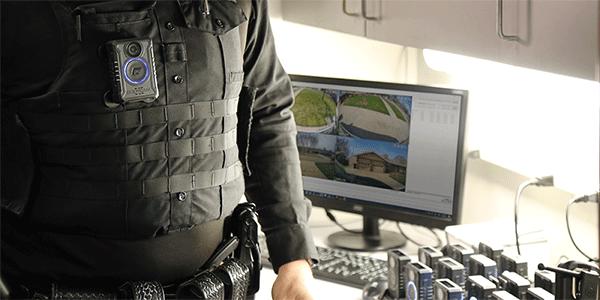The New Jersey Bodycam Mandate: What You Need to Know

State-mandated use of body-worn cameras (BWCs) continues to expand in 2021. The latest state that has a quickly-approaching mandate is New Jersey.
By June 1, New Jersey will require all law enforcement professionals to wear BWCs – minus a few exceptions for undercover work and those who work desk jobs.
With a little more than a month to go before the mandate officially goes into effect, let’s take a look at the background of the mandate, the requirements of the mandate and how agencies in New Jersey can successfully work toward meeting the requirements.
The Background
The mandate was made official back in November 2020, when Gov. Phil Murphy signed two bills into law.
The first was New Jersey Senate Bill S1163 that established the requirement for law enforcement to wear BWCs. The second was New Jersey Assembly Bill A4312, which further established specific rules for using the cameras. Murphy also issued Executive Order 201 to form a committee to advise agencies on finding the best technology to meet the mandate.
And with a survey completed by Attorney General Gurbir Grewal in late 2020 showing that about 45% of police agencies in the state were already using BWCs, more than half of the agencies still have some work to do.
What are the Requirements?
First off, let’s look at the general requirements of the mandate. Senate Bill S1163 establishes the basics of BWC operation requirements. As mentioned earlier in the post, every law enforcement professional in the state will be required to wear a BWC and record their interactions, but there are a few exceptions:
- Officers working undercover
- Officers meeting with confidential informants
- Officers working desk jobs not working out in the field
The second bill (A4312) establishes more specific rules for using the BWCs. Some of the important highlights include:
- All officers must notify residents when they’re being filmed
- Citizens can request an officer to turn off a camera under specific circumstances (EX: medical emergency)
- Officers can switch cameras off inside schools, hospitals and places of worship
- All footage must be kept for 180 days minimum
- Use-of-force and arrest-related footage must be kept for three years minimum
- Outside companies storing any video footage cannot view it at any time
In addition to the two bills Murphy signed into law, the state also is asking agencies to follow the requirements listed in Attorney General Law Enforcement Directive No. 2015-1. The directive was released in mid-2015 and established many of the requirements that were beefed up in Bill A4312, but the state is asking agencies to review both documents and base their policies off those requirements.
How is it Funded?
After the two bills were signed into law to end 2020, many agencies turned to the next important question: “How will we pay for this technology?”
The state started addressing that issue shortly after passing the bills by earmarking $58 million for BWC program funding in December 2020. With that money, the state has opened up a grant program departments can apply for through this short application. The state has put a deadline of April 30, 2021, so anyone still looking for take advantage of this funding needs to hurry up and submit an application.
On the federal side, the U.S Department of Justice (DOJ) and Bureau of Justice Assistance typically open up federal grant opportunities for BWC programs in late Q1 (Jan-Feb-March) and early Q2 (April-May-June) each year. But so far this year, the federal government hasn’t advertised any BWC funding opportunities.
Given the complexities of a new administration coming in with the background of federal funding related to COVID-19, the normal application timeline is off from typical years. But keep an eye on this link that compiles any available funding for BWCs from the federal government, which will surely be updated as funding initiatives start to ramp up again. According to the DOJ, it awarded more than 31,300 grants for a total value of nearly $12 billion in fiscal year 2020, so money should start flowing again soon on the federal level.
On the state level, agencies should contact their local government bodies and ask about any remaining federal money from the CARES Act established last year to combat COVID-19. Departments across the country have been able to get some of this funding to establish such technology as BWCs for safety initiatives, so be sure to check with your local municipality to see if any such funding is available.
Outside of federal and state options, websites like Police1.com also have running lists of law enforcement grants from all over the country that could possibly be leveraged by an agency.
Meet the Mandate with Bodycam® 4 – Your Next Generation BWC
Looking for a complete body-worn camera solution designed to meet the New Jersey BWC mandates? Check out the Pro-Vision Bodycam® 4 and SecuraMax Cloud Evidence Management software to see how you can meet the mandate with a total video evidence solution designed to protect those who serve.